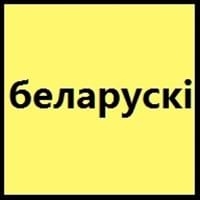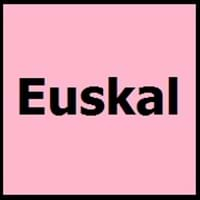Belarusian vs Basque
Countries
Belarus, Poland
Basque Autonomous Community, Navarre
National Language
Belarus, Gambia
France, Spain
Second Language
Poland
Not spoken in any of the countries
Speaking Continents
Asia
Asia, Europe
Minority Language
Czech Republic, Lithuania, Ukraine
Not spoken in any of the countries
Regulated By
National Academy of Sciences of Belarus, National Languages Committee
Euskaltzaindia, National Languages Committee
Interesting Facts
- Since 1918, Belarusian has been the official language of Belarus.
- Belarusian include many loanwords from Polish language.
- The Basque language is the oldest European language.
- Basque alphabet include many Roman letters.
Similar To
Russian and Ukrainian
Spanish
Derived From
Not Available
Not Available
Alphabets in
Belarusian-Alphabets.jpg#200
Basque-Alphabets.jpg#200
Writing Direction
Not Available
Not Available
Language Levels
Not Available
Time Taken to Learn
Not Available
Thank You
Dziakuj
Eskerrik asko
How Are You?
Jak vy ?
Zer moduz?
Good Night
Dabranač
Gabon
Good Evening
Dobry viečar
Arratsalde on
Good Afternoon
dobry dzień
Arratsalde on
Good Morning
Dobraj ranicy
Egun on
Please
Kali laska
Mesedez
I Love You
JA liubliu ciabie
Maite zaitut
Excuse Me
Vybačajcie
Barkatu
Dialect 1
North-Eastern Belarusian
Navarro-Lapurdian
Where They Speak
North-East Belarus
France
How Many People Speak
Not Available
Dialect 2
South-Western Belarusian
Souletin
Where They Speak
South-West Belarus
France, Soule, Spain
How Many People Speak
Not Available
Dialect 3
Middle Belarusian
Biscayan
Where They Speak
Middle Belarus
Spain
Speaking Population
Not Available
Second Language Speakers
Not Available
Native Name
Беларуская мова (Bielaruskaja mova)
Not available
Alternative Names
Belarusan, Belorussian, Bielorussian, Byelorussian, White Russian, White Ruthenian
Euskara, Euskera, Vascuense
French Name
biélorusse
basque
German Name
Weißrussisch
Baskisch
Pronunciation
Not Available
Not Available
Ethnicity
Belarusians
Basque people
Origin
18th century
c. 1000
Language Family
Indo-European Family
Vasconic Family
Subgroup
Slavic
Not Available
Branch
Eastern
Not Available
Early Forms
Old East Slavic
Proto-Basque, Aquitanian
Standard Forms
Belarusian
Basque
Language Position
Not Available
Signed Forms
Not Available
Not Available
Scope
Individual
Not Available
ISO 639 6
Not Available
Not Available
Glottocode
bela1254
basq1248
Linguasphere
53-AAA-eb < 53-AAA-e (varieties: 53-AAA-eba to 53-AAA-ebg)
40-AAA-a
Language Type
Living
Not Available
Language Linguistic Typology
Not Available
Subject-Object-Verb
Language Morphological Typology
Not Available
Agglutinative
Belarusian and Basque Language History
Comparison of Belarusian vs Basque language history gives us differences between origin of Belarusian and Basque language. History of Belarusian language states that this language originated in 18th century whereas history of Basque language states that this language originated in c. 1000. Family of the language also forms a part of history of that language. More on language families of these languages can be found out on Belarusian and Basque Language History.
Belarusian and Basque Greetings
People around the world use different languages to interact with each other. Even if we cannot communicate fluently in any language, it will always be beneficial to know about some of the common greetings or phrases from that language. This is where Belarusian and Basque greetings helps you to understand basic phrases in Belarusian and Basque language. Belarusian word for "Hello" is dobry dzień or Basque word for "Thank You" is Eskerrik asko. Find more of such common Belarusian Greetings and Basque Greetings. These greetings will help you to be more confident when conversing with natives that speak these languages.
Belarusian vs Basque Difficulty
The Belarusian vs Basque difficulty level basically depends on the number of Belarusian Alphabets and Basque Alphabets. Also the number of vowels and consonants in the language plays an important role in deciding the difficulty level of that language. The important points to be considered when we compare Belarusian and Basque are the origin, speaking countries, language family, different greetings, speaking population of these languages. Want to know in Belarusian and Basque, which language is harder to learn? Time required to learn Belarusian is Not Available while to learn Basque time required is 88 weeks.





